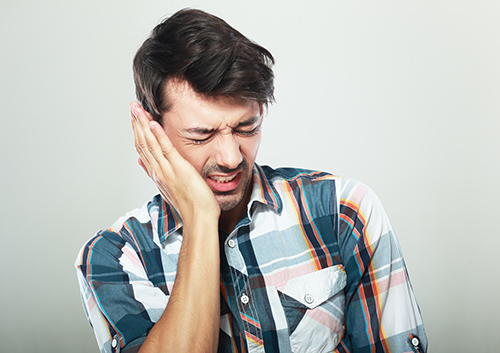Why Are My Child’s Baby Teeth So White?
March 29th, 2023

One of the most charming aspects of your baby’s beautiful smile is his brilliantly white teeth. But now that his adult teeth are coming in, the difference in color is very noticeable. Is this something to be concerned about? Happily, probably not.
Both baby teeth and adult teeth have the same basic structure. The inside of the tooth, the pulp, contains blood vessels and nerves. The pulp is covered by a layer of dentin, a hard, yellowish substance composed of living tissue that helps protect the pulp and transmits signals for pain, pressure, and temperature. Enamel is the outer protective covering of the tooth, and its natural color can vary from greyish-white to light yellow.
If primary and permanent teeth are so alike, how can they look so different? As with so many things, the difference lies in the details. In adult teeth, enamel is semi-translucent, so it will allow the color of what is beneath it to show through. And the color of the thick dentin beneath is naturally yellow. Baby teeth have a thinner layer of the yellowish dentin. And while their enamel is also thinner, the enamel in baby teeth is generally whiter and more opaque, so less of the underlying yellow from the dentin is visible.
The result of these small differences is that adult teeth are normally darker than baby teeth to begin with. And when a permanent tooth that is just a bit darker erupts next to a bright white baby tooth, it is going to look even more yellow than it actually is. Once all of the baby teeth in front have been replaced with adult teeth, you will have a much better idea of their real color without unflattering comparisons!
There are times when concerns about tooth color should be looked at by Dr. James Robson more closely.
- Unusual discoloration in teeth should be examined. Some discoloration is caused by medical conditions such as hypomineralization, some by environmental factors such as excess fluoride, some by trauma, some by medication. If you notice a discolored section of your child’s tooth, or the tooth has turned a different shade from the teeth around it, give us a call.
- Your child might have naturally whiter or yellower teeth simply as a matter of genetics. If your child is self-conscious about the color of his teeth, we can talk about whitening solutions when he is old enough to use them safely. Home whitening products should never be used on young children.
Give yourself time to adjust to your child’s new, adult smile. You will probably notice no difference at all once all of his permanent teeth come in. And keep those new teeth their brightest with consistent brushing and flossing, and regular checkups and cleanings at our East Lyme, CT office. This is the simplest prescription for a charming, white, and healthy smile at any age.



